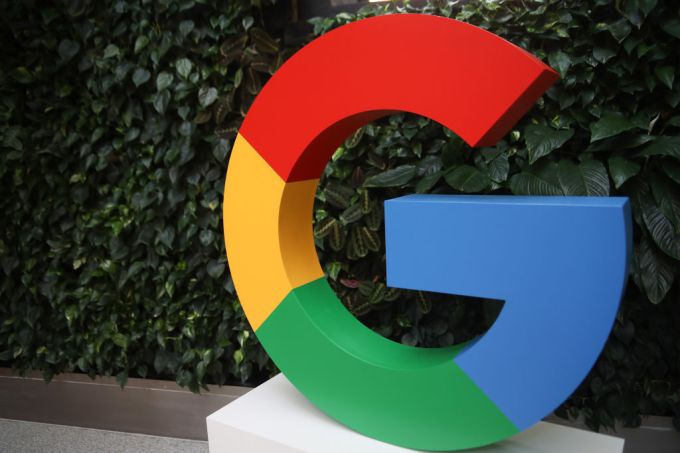
Image Credits:Viaframe
The $100 billion partnership between Nvidia and OpenAI, announced Monday, represents – for now – the latest mega-deal reshaping the AI infrastructure landscape. The agreement involves non-voting shares tied to massive chip purchases and enough computing power for more than 5 million U.S. households, deepening the relationship between two of AI’s most powerful players.
Meanwhile, Google Cloud is placing a different bet entirely. While the industry’s biggest players cement ever-tighter partnerships, Google is hellbent on capturing the next generation of AI companies before they become too big to court.
Francis deSouza, its COO, has seen the AI revolution from multiple vantage points. As the former CEO of genomics giant Illumina, he watched machine learning transform drug discovery. As co-founder of a two-year-old AI alignment startup, Synth Labs, he has grappled with the safety challenges of increasingly powerful models. Now, having joined the C-suite at Google Cloud in January, he’s orchestrating a massive wager on AI’s second wave.
It’s a story deSouza likes to tell in numbers. In a conversation with this editor earlier this week, he noted several times that nine out of the top 10 AI labs use Google’s infrastructure. He also said that nearly all generative AI unicorns run on Google Cloud, that 60% of all gen AI startups worldwide have chosen Google as their cloud provider, and that the company has lined up $58 billion in new revenue commitments over the next two years, which represents more than double its current annual run rate.
“AI is resetting the cloud market, and Google Cloud is leading the way, especially with startups,” he said in a soft-spoken tone, his understated delivery masking an ambitious strategy to home in on upstarts while the biggest players are busy striking lucrative but non-exclusive partnerships.
The Nvidia-OpenAI deal exemplifies the scale of consolidation sweeping AI infrastructure. Microsoft’s original $1 billion OpenAI investment has grown to nearly $14 billion, fundamentally reshaping the cloud market. Amazon followed with $8 billion in Anthropic investments, securing deep hardware customizations that essentially tailor AI training to work better with Amazon’s infrastructure. Oracle has emerged as a surprise winner, too, landing a $30 billion cloud deal with OpenAI and then securing a jaw-dropping $300 billion five-year commitment starting in 2027.
Even Meta, despite building its own infrastructure, signed a $10 billion deal with Google Cloud while planning $600 billion in U.S. infrastructure spending through 2028. The Trump administration’s $500 billion “Stargate” project, involving SoftBank, OpenAI and Oracle, adds another layer to these interlocking partnerships.
Join 10k+ tech and VC leaders for growth and connections at Disrupt 2025
Netflix, Box, a16z, ElevenLabs, Wayve, Sequoia Capital, Elad Gil — just some of the 250+ heavy hitters leading 200+ sessions designed to deliver the insights that fuel startup growth and sharpen your edge. Don’t miss the 20th anniversary of TechCrunch, and a chance to learn from the top voices in tech. Grab your ticket before Sept 26 to save up to $668.
Join 10k+ tech and VC leaders for growth and connections at Disrupt 2025
Netflix, Box, a16z, ElevenLabs, Wayve, Sequoia Capital, Elad Gil — just some of the 250+ heavy hitters leading 200+ sessions designed to deliver the insights that fuel startup growth and sharpen your edge. Don’t miss the 20th anniversary of TechCrunch, and a chance to learn from the top voices in tech. Grab your ticket before Sept 26 to save up to $668.
These gigantic deals might seem threatening for Google, given the partnerships that companies like OpenAI and Nvidia appear to be cementing elsewhere. In fact, it looks a lot like Google is being cut out of some frenzied dealmaking.

The Google logo appears during a meeting between Alphabet and Google CEO Sundar Pichai and Polish Prime Minister Donald Tusk at Google for Startups in Warsaw, Poland, on February 13, 2025. (Photo by Klaudia Radecka/NurPhoto via Getty Images)Image Credits:Klaudia Radecka/NurPhoto / Getty Images
But the corporate behemoth isn’t exactly sitting on its hands. Instead, Google Cloud is signing smaller companies like Loveable and Windsurf — what deSouza calls the “next generation of companies coming up”– as “primary computing partners” without major upfront investments.
The approach reflects both opportunity and necessity. In a market where companies can go “from being a startup to being a multi-billion dollar company in a very short period of time,” as deSouza puts it, capturing future unicorns before they mature could prove more valuable than fighting over today’s giants.
The strategy extends beyond simple customer acquisition. Google offers AI startups $350,000 in cloud credits, access to its technical teams, and go-to-market support through its marketplace. Google Cloud also provides what deSouza describes as a “no compromise” AI stack – from chips to models to applications – with an “open ethos” that gives customers choice at every layer.
“Companies love the fact that they can get access to our AI stack, they can get access to our teams to understand where our technologies are going,” deSouza said during our interview. “They also love that they’re getting access to enterprise grade Google class infrastructure.”
This infrastructure advantage became more apparent this month when reporting revealed Google’s behind-the-scenes maneuvering to expand its custom AI chip business. According to The Information, Google has struck deals to place its tensor processing units (TPUs) in other cloud providers’ data centers for the first time, including an agreement with London-based Fluidstack that includes up to $3.2 billion in financial backing for a New York facility.
Competing directly with AI companies while simultaneously providing them infrastructure requires finesse. Google Cloud provides TPU chips to OpenAI and hosts Anthropic’s Claude model through its Vertex AI platform, even as its own Gemini models compete head-to-head with both. (Google Cloud’s parent company, Alphabet, also owns a 14% stake in Anthropic, per New York Times court documents obtained earlier this year, though when asked directly about Google’s financial relationship with Anthropic, deSouza calls the relationship a “multi-layered partnership” then quickly redirected to Google Cloud’s “model garden” – noting that customers can access various foundation models.)
But if Google is trying to be Switzerland while advancing its own agenda, it has had plenty of practice. The approach has roots in Google’s open-source contributions, from Kubernetes to the foundational “Attention is All You Need” paper that enabled the transformer architecture underlying most modern AI. More recently, Google published an open-source protocol called Agent-to-Agent (A2A) for inter-agent communication in an attempt to demonstrate its continued commitment to openness even in competitive areas.
“We have made the explicit choice over the years to be open at every layer of the stack, and we know that this means companies can absolutely take our technology and use it to build a competitor at the next layer,” deSouza acknowledged. “That’s been happening for decades. That’s something we are okay with.”
Google Cloud’s courtship of startups comes at a particularly interesting moment. Just this month, federal judge Amit Mehta delivered a nuanced ruling in the government’s five-year-old search monopoly case, attempting to curb Google’s dominance without hampering its AI ambitions.
While Google avoided the Justice Department’s most severe proposed penalties, including the forced divestment of its Chrome browser, the ruling underscored regulatory concerns about the company leveraging its search monopoly to dominate AI. Critics are worried, understandably, that Google’s vast trove of search data provides an unfair advantage in developing AI systems, and that the company could deploy the same monopolistic tactics that secured its search dominance.
In conversation, deSouza is focused on far more positive outcomes. For example, he says, “I think we have an opportunity to fundamentally understand some of the major diseases that today we just don’t have a good understanding of,” deSouza said, outlining a vision where Google Cloud helps power research into Alzheimer’s, Parkinson’s, and climate technologies. “We want to work very hard to make sure that we are pioneering the technologies that will enable that work.”
Critics may not easily be assuaged. By positioning itself as an open platform that empowers rather than controls the next generation of AI companies, Google Cloud may be showing regulators that it fosters competition rather than stifles it, all while forging relationships with startups that might help Google’s case if regulators ramp up pressure.
For our full conversation with deSouza, check out this week’s StrictlyVC Download podcast; a new episode comes out every Tuesday.

-
 C114 Communication Network
C114 Communication Network -
 Communication Home
Communication Home


